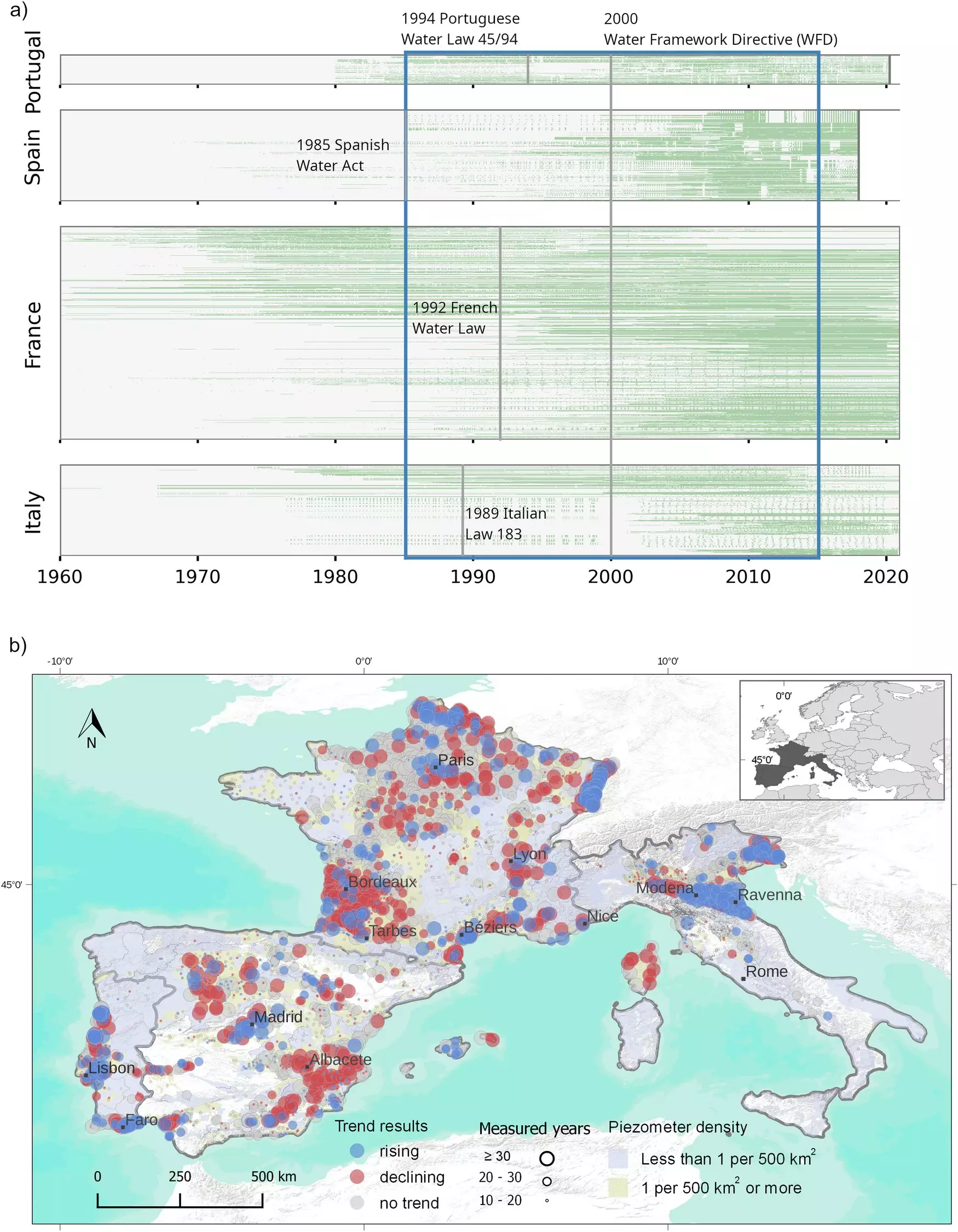Groundwater is a crucial resource that plays a vital role in sustaining plants, ecosystems, agricultural production, and drinking water supplies. However, various factors such as climate change and anthropogenic pressures can pose a threat to groundwater availability, especially in southwestern Europe. An international research team led by the Helmholtz Centre for Environmental Research (UFZ) recently published a paper in Communications Earth & Environment that evaluates the state of groundwater in Portugal, Spain, France, and Italy based on multidecadal data from over 12,000 groundwater wells.
Contrary to widely held beliefs, the study revealed that groundwater levels in southwestern Europe are not uniformly declining. In fact, an in-depth analysis of the data indicated that 68% of the examined wells showed stable levels over the past three decades, 20% showed rising groundwater levels, and only 12% exhibited a decline. The researchers stressed the importance of taking a localized and detailed approach when assessing groundwater systems, as various factors influence groundwater levels in different regions.
Stable groundwater levels were predominantly found in temperate regions with high annual precipitation rates, such as northern France, where recharge rates help maintain stable groundwater levels. On the other hand, semi-arid regions with intensive agriculture and frequent droughts, like Tarbes in France and Medina del Campo in Spain, experienced declining groundwater levels due to reduced rainfall, higher temperatures, and increased agricultural demands.
Urbanization and industrial activities have also played a significant role in affecting groundwater levels in southwestern Europe. Metropolitan areas like Lyon, Nice, Modena, and Bordeaux have witnessed a decline in groundwater levels since the 1960s, primarily due to increased domestic water consumption. Popular tourist destinations like Béziers in France have also seen a decline in groundwater levels as a result of heightened extraction for summer tourist water needs.
The study highlighted successful groundwater management approaches in semi-arid, agricultural regions, such as La Mancha Oriental in Spain. In these areas, a combination of monitoring, remote sensing, and individual water use plans has led to the recovery of groundwater levels. For example, the establishment of a water user association in La Mancha Oriental helped reverse groundwater level trends that were declining due to excessive irrigation.
As climate change continues to impact groundwater resources globally, the experiences gained from managing groundwater in southwestern Europe can offer valuable lessons for countries like Germany. With increasing groundwater demand and reduced aquifer recharge due to climate change, a proactive and sustainable approach to groundwater management is essential. Germany can benefit from understanding optimal groundwater use, effective irrigation methods, stakeholder engagement, and learning from past mistakes to ensure sustainable groundwater management.
The study’s findings shed light on the complex nature of groundwater trends in southwestern Europe and highlight the importance of targeted management practices to ensure sustainable groundwater use. By learning from the successes and challenges faced in the region, countries around the world can develop strategies to protect and preserve this invaluable resource for future generations.


Leave a Reply